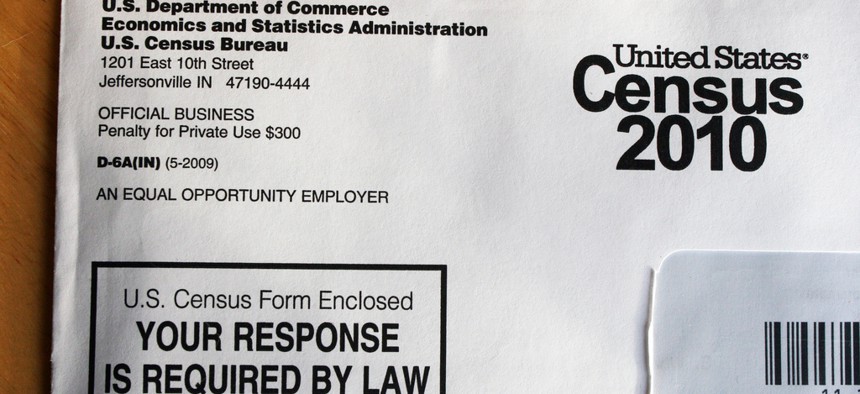
Flickr user quinnanya
Secret Justice Department Memo Reveals Census Data Is Off Limits to Government Spying
The 2010 legal opinion may reveal the first known restriction on mass surveillance carried out under the Patriot Act.
A newly disclosed Justice Department memo from 2010 concluded the government lacks legal authority under a controversial section of the Patriot Act to spy on Americans' census data.
A broadly applied section of the post-9/11 law does not allow surveillance authority over that personal information because of existing confidentiality protections passed by Congress in the Census Act, the legal opinion states.
"We therefore conclude that section 215 should not be construed to repeal otherwise applicable Census Act protections for covered census information such that they could require their disclosure by the Department of Commerce," it reads.
The previously classified document, written at the behest of the Commerce Department, was made available Thursday by the Electronic Frontier Foundation, a digital-rights advocacy group, in response to a four-year-old Freedom of Information Act lawsuit.
Privacy advocates were stunned by the apparent limitations set forth in the memo.
The protections afforded to census data likely amount to the first publicly known restriction on mass surveillance under Section 215 of the Patriot Act, which grew extraordinarily controversial in the wake of the Snowden disclosures that began more than 18 months ago, said Mark Rumold, a staff attorney with EFF.
"As far as I've seen this is the first limit i've seen the government admit that Section 215 has," Rumold said. "They're using it to collect the call records of millions and millions of Americans--apparently, census data is its limit."
Top-secret documents revealed by the former National Security Agency contractor revealed that Section 215 is used by the intelligence community to collect U.S. phone records in bulk, thanks to a loose interpretation of the measure's relevancy standard.
The census, which attempts to count every person living in the U.S. and collect other demographic information, takes place every 10 years and was last conducted in 2010. At the time, some conservatives, including then-Rep. Michele Bachmann and media personality Glenn Beck, urged Americans to boycott the census because some of its questions were overly intrusive and not allowed under the Constitution.
Much of the aggregated census data is made publicly available online. But Rumold said the memo suggests intelligence authorities were looking for permission to access and sift through more granular data—such as names, addresses and phone numbers—rather than generalized demographic information.
Scholars have said that census data has been used by the U.S. government before for intrusive purposes, however. A 2000 report concluded the data was used in the 1940s to relocate Japanese-Americans into internment camps during World War II.
(Image via Flickr user quinnanya)







